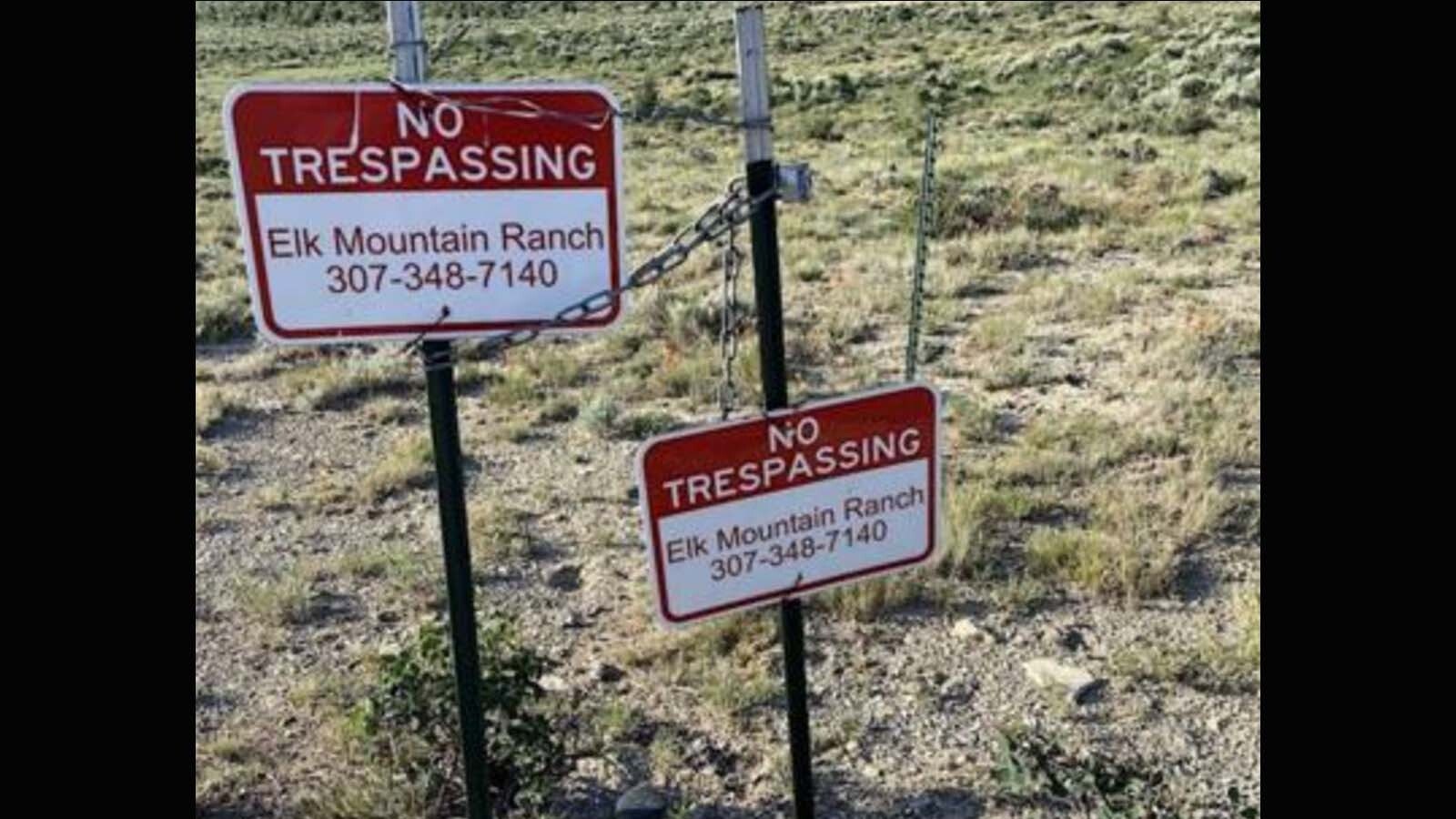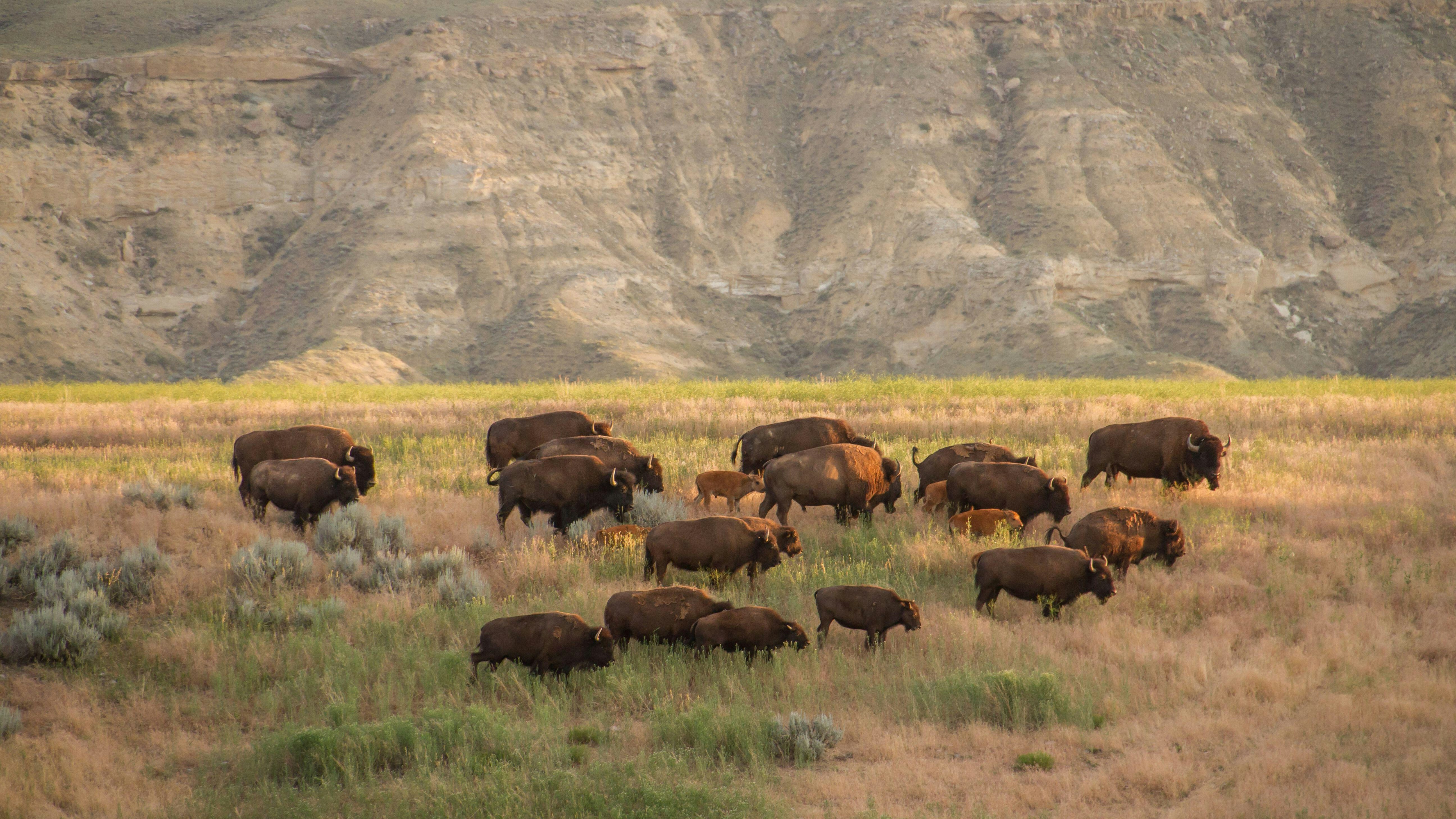Four hunters accused of trespass are asking a federal judge to rule a private landowner in Carbon County is illegally blocking access to public lands.
In the latest filing in a lawsuit against the hunters filed by Iron Bar Holdings, the four ask U.S. District Court to dismiss the lawsuit, saying the company’s efforts amount to an attempt to control public land.
“(Iron Bar) claims that it and other private landowners like it may dominate the open range and enclose the vastness of the public domain in the American West,” said the request for dismissal filed Monday. “(Iron Bar) claims that private landowners alone may control who among us gets to access, enjoy and step foot on certain federally owned public lands.
“Because (Iron Bar’s) claims depend on violations of federal laws governing the use of and access to federally owned public lands and are, accordingly, preempted by these federal laws and related federal policies, (the hunters) respectfully request that this case dismiss (Iron Bar’s) claims,” it continued.
The lawsuit stems from allegations the four Missouri hunters — Bradley Cape, Zachary Smith, Phillip Yoemans and John Slowensky — violated Iron Bar’s airspace when they crossed from one parcel of federal land to another in Carbon County.
Southern Wyoming has a “checkerboard” land patter in which public and private lands are intermingled. Those properties often share corners, with two public parcels resting diagonally from each other.
In late September, the four hunters used a “ladder-like” device to cross from one piece of public property to another at a corner shared with Iron Bar’s property without actually touching the private property.
But in its lawsuit, Iron Bar said the hunters invaded the airspace above its private property. The company wants the court to rule such activities, known as “corner crossing,” amount to trespass.
But the hunters said the company’s claims are to an effort to keep the public off of public lands in violation of federal law and contrary to previous federal court rulings.
“Federal law prohibits (Iron Bar) from intentionally enclosing federally owned public lands as well as excluding others from the public domain,” it said.
The request cited the Unlawful Inclosures of Public Lands Act of 1885, which was adopted to keep cattle producers from locking away large tracts of public land from farmers.
“For over a century, Congress has maintained federal laws that expressly forbid any private individual or private corporation from enclosing the public domain for the purpose of monopolizing both access to and use and enjoyment of the public domain,” the request said.
In addition to violating federal law, Iron Bar has not alleged that the hunters caused any actual damage to its property, meaning it has no cause to file a lawsuit, the request said.
The request asked the federal court to uphold the federal laws governing access to public lands and dismiss the lawsuit.
Because this Court should not repeal those federal laws by implication or otherwise displace those laws to accommodate (Iron Bar’s) preferred rendition of its property rights and entitlement to control access to federally owned public lands, (Iron Bar) has failed to state any claim upon which relief can be granted,” it said. “For all the reasons provided herein, Defendants respectfully request that this Court dismiss Plaintiff’s Complaint.





